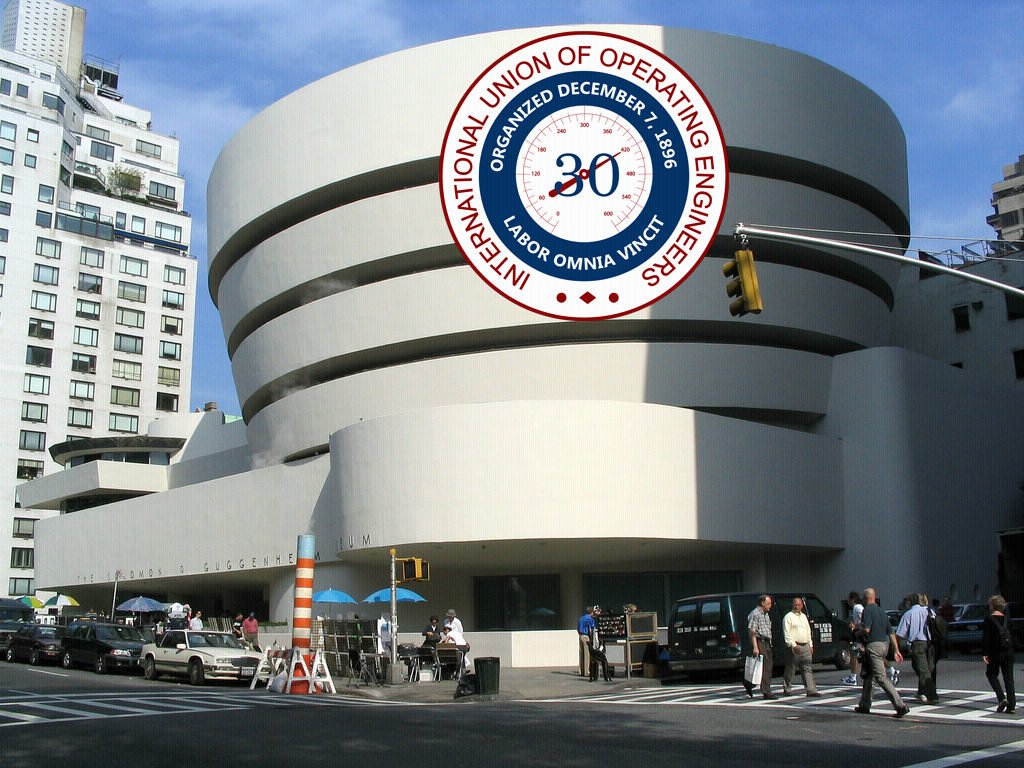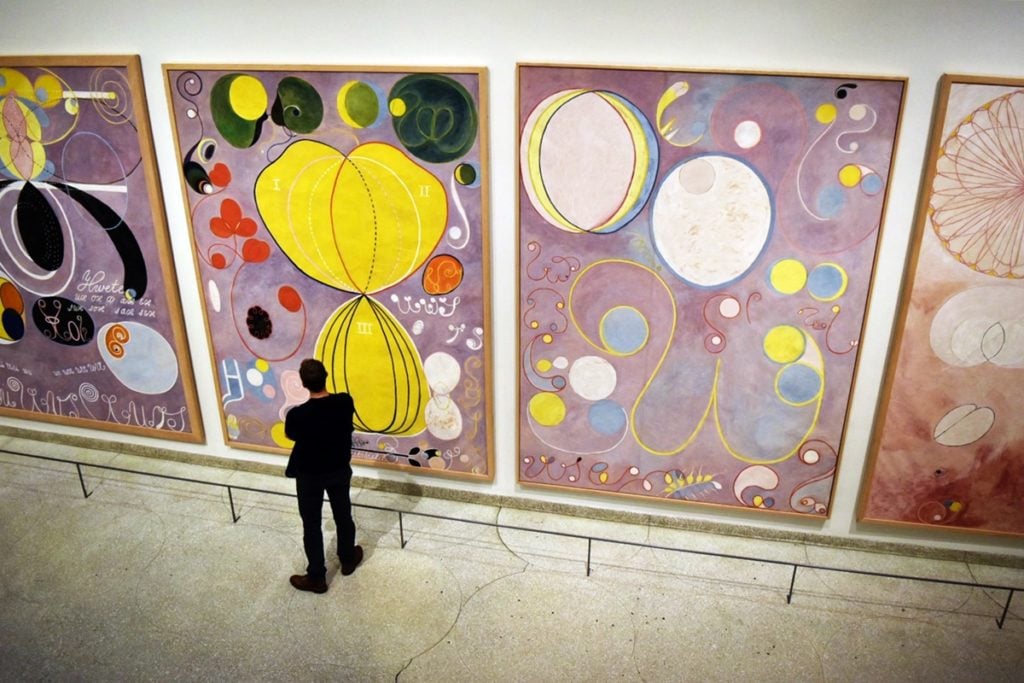Law & Politics
‘We’re Being Treated Like Parasites’: Guggenheim Employees Complain of Low Pay and Long Hours in a Bid to Unionize
The museum is consulting with the National Labor Relations Board to discuss a potential vote.

The museum is consulting with the National Labor Relations Board to discuss a potential vote.

Ben Davis

The Guggenheim has been basking in acclaim recently for its blockbuster Hilma af Klint show. Behind the scenes, however, storm clouds have been gathering, with staff complaining about poor treatment and pay seeking to unionize. Last week, about 80 workers, representing art installers and building maintenance workers, filed a letter of intent to affiliate with the International Union of Operating Engineers Local 30, says Andres Puerta, an organizer with the union.
Conditions behind the scenes at the Guggenheim have been deteriorating for several years, according to Puerta and two other workers interviewed for this story who wished to remain anonymous for fear of being singled out by the museum or future employers.
“Broadly, the issues are long hours and weekends with no breaks, leading to safety concerns, no raises in years, low wages compared to similar institutions, and murky scheduling procedures,” said one of the workers, who is an installer. “Maintenance has similar grievances of few raises and poorly defined work rules. We want what other museums have: increased wages and defined wage increases, explicit work rules, and more transparent scheduling policies.”
A breaking point came when workers discovered that last year no one had received a raise, despite the increasing demands. This came on top of successful unionization efforts at other institutions, such as the New Museum and MoMA PS1, and the revelation from a widely circulated Google doc of staff salaries at various museums.

Installation view of Hilma af Klint’s “The Ten Largest.” Image courtesy of Ben Davis.
Also throwing the situation in relief: The juxtaposition between the conditions of the workers and the blockbuster success of the recent Hilma af Klint show. “We’re hot on the heels of their most successful museum show ever,” one of the workers told artnet News. “We don’t really see anything related to that. We petition them, and they don’t respond.”
According to Puerta, organizers had asked the museum to hold a ‘card check’ election supervised by a neutral arbiter, in which a majority can vote to affiliate with a union. Museum management have instead sought to negotiate the terms of the elections via the National Labor Relations Board, in the meantime holding a series of “Employee Information Sessions” to provide “relevant facts about the situation” to affected staff, according to an email send to workers.
The first such session, with building maintenance workers, was held today. According to Puerta, the information presented included the idea that should they affiliate with the union, they could be forced to go on strike and be permanently replaced. “This is an old and tired management threat that comes straight out of the union busting playbook,” Puerta said. “Management has sadly chosen to threaten the workers instead of respecting them.”
A representative of the Guggenheim declined to address any of the specific grievances mentioned in this story. “We have been informed that Local 30 of the International Union of Operating Engineers is seeking to represent a certain group of our employees,” the representative wrote. “We respect the right of our employees to decide whether they wish to be represented by a union. This matter is now pending with the National Labor Relations Board.”
The decision to draw out the process rather than go the ‘card check’ route has further aggravated the situation.
“The vast majority were excited about unionization, or at least in favor of it, but the museum responding as they have has now made a lot of people outright upset,” one of the workers told artnet News. “We’re being treated like parasites now that we’re not just shutting up and getting to work. Everyone understands the museum can’t outright stop us, so it’s just a matter of having the vote and enduring their propaganda until then.”